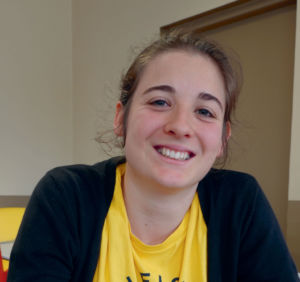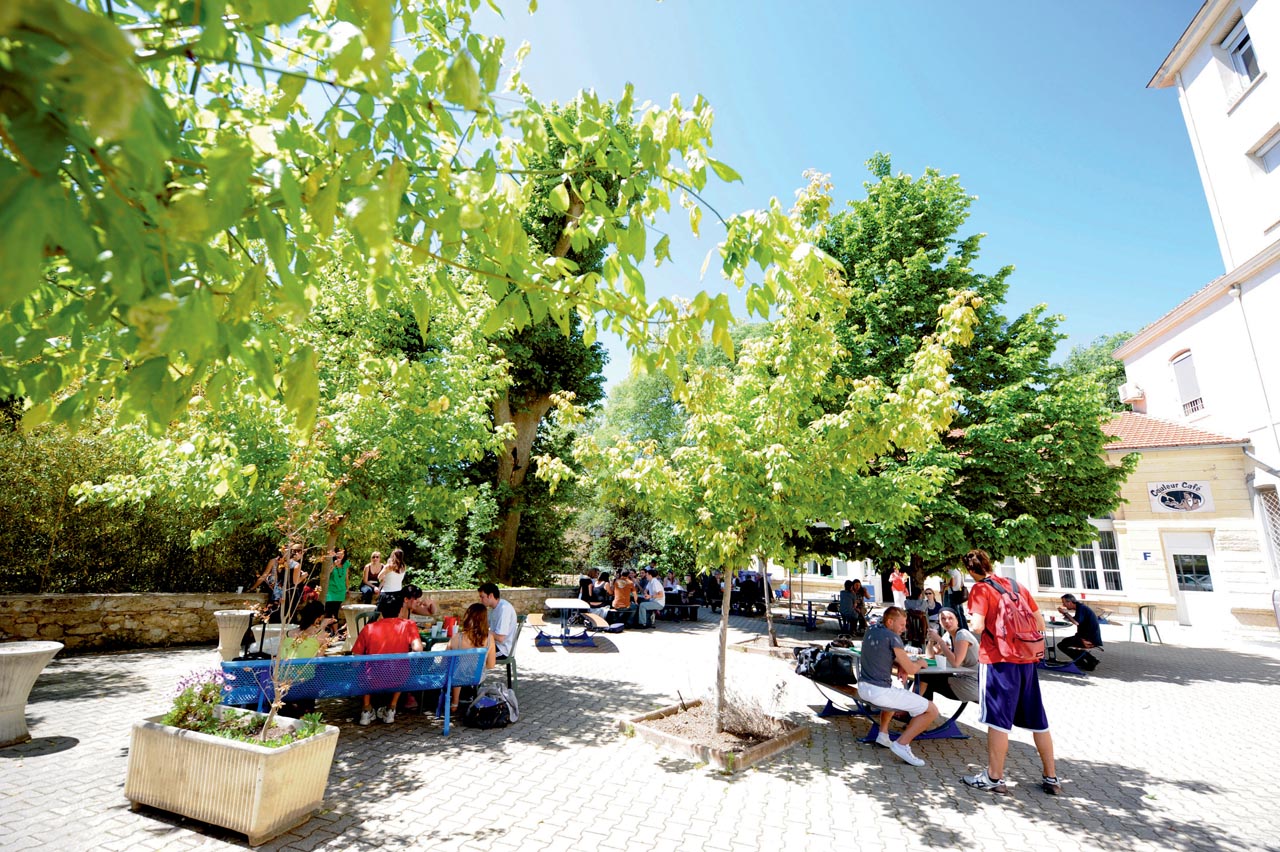Training school teachers differently
Since September 2018, the Faculty of Education (FDE) has been offering a bachelor's degree in Multidisciplinarity and Teaching, Education, and Training Professions, accessible after high school graduation at three of its five sites in Nîmes, Carcassonne, and Montpellier. This represents a mini-revolution in the training of future school teachers.
Innovative, longer, and above all more comprehensive. That sums up the teacher training program for primary school teachers (preschool and elementary school) offered at the UM's FDE since the start of the last academic year. "The initial training of future school teachers takes place at the master's level, after a bachelor's degree that is often monodisciplinary, and lasts two years, the first of which is taken up with cramming for the recruitment exam. This training, which is ultimately reduced to a single year of truly professional training, is clearly unsuited to the reality of an increasingly complex profession at the beginning of the 21st century. Faced with this observation, the University of Montpellier has therefore decided to change it! Michel Ramos, deputy director in charge of primary education at the FDE, recently confided that he is responsible, along with Agnès Perrin-Doucey and Muriel Guedj, for coordinating the gradual rollout of the Multidisciplinarity and Teaching, Education, and Training degree, initially at the Nîmes and Carcassonne campuses, Carcassonne, and Montpellier, before Mende and Perpignan at the start of the next academic year.
Innovative training
"Knowing how to develop critical thinking skills, communicate effectively, solve problems, and exercise creativity... Bachelor's degree students are now assessed according to a set of skills during three fast-paced, professionalizing years. This is the first stage of 1,500 hours of training that now precedes preparation for the competitive recruitment exam for school teachers (CRPE), which remains part of the master's degree," explains Jean-Paul Udave, who has been head of the Faculty of Education for more than five years now.
No lectures, small class sizes (40 to 50 students on average), an active role for students in the learning process, state-of-the-art audiovisual and digital equipment (Learning Lab), a focus on group work, and more. The new bachelor's degree program is designed as a veritable laboratory for innovative practices, and its "unconventional" format has been unanimously welcomed by students in the 2018-2019 cohort. "Beyond passively acquiring knowledge, we are learning here to think about our future profession. During education history classes, for example, we discuss not only the evolution of the status of schools over time, but also the different ways of thinking within the education system," says Mathilde Grillon, a first-year bachelor's student enrolled at the Montpellier campus.
Local roots
The Multidisciplinary and Teaching, Education, and Training degree program will be offered at the Mende and Perpignan campuses starting in September 2019. This is an opportunity to confirm, if necessary, the university's commitment to local roots, as it strives to contribute to the economic, social, and cultural development of medium-sized cities known as "balanced cities." ." The expansion of on-site vocational training opportunities allows young people from modest backgrounds to learn a trade without having to move to large university cities, which is often too costly. This is why, in a few weeks' time, it will be possible to access the entire training program for school teachers at the five FDE sites. This will be done in small-scale structures that allow for personalized support for each student.
The FDE as seen by a student
Luana Guyon-Venet, 18, first-year undergraduate student
 The launch of the Multidisciplinarity and Teaching, Education, and Training Professions degree program at FDE Montpellier allows me to start training for my future career right now, without having to wait to start my master's degree and avoiding the previously mandatory step of completing a single-subject bachelor's degree. I am delighted to be part of this first cohort, where I rub shoulders with passionate students and teachers who, beyond imparting essential knowledge, teach us how to approach the profession of school teacher, which I believe I was called to pursue when I was in my junior year of high school. My desire to become a teacher can be explained quite simply by my love of children and my desire to pass on knowledge.
The launch of the Multidisciplinarity and Teaching, Education, and Training Professions degree program at FDE Montpellier allows me to start training for my future career right now, without having to wait to start my master's degree and avoiding the previously mandatory step of completing a single-subject bachelor's degree. I am delighted to be part of this first cohort, where I rub shoulders with passionate students and teachers who, beyond imparting essential knowledge, teach us how to approach the profession of school teacher, which I believe I was called to pursue when I was in my junior year of high school. My desire to become a teacher can be explained quite simply by my love of children and my desire to pass on knowledge.
FDE in figures
- 5 locations: Nîmes, Montpellier, Carcassonne, Mende, and Perpignan;
- 10 disciplinary departments;
- 2,577 students;
- 150 undergraduate students at the start of the 2018 academic year.
TAKE-OFF projects: MUSE supports educational transformation
MUSE is currently funding three TAKE-OFF projects to support the FDE's educational transformation: the first for the implementation of Learning Labs at its five sites, the second for a license of excellence (PULE) for the development of innovative teaching practices, and the third for the design of university teaching training (CONFOR PU) to promote the extension of these practices to the entire university community.
